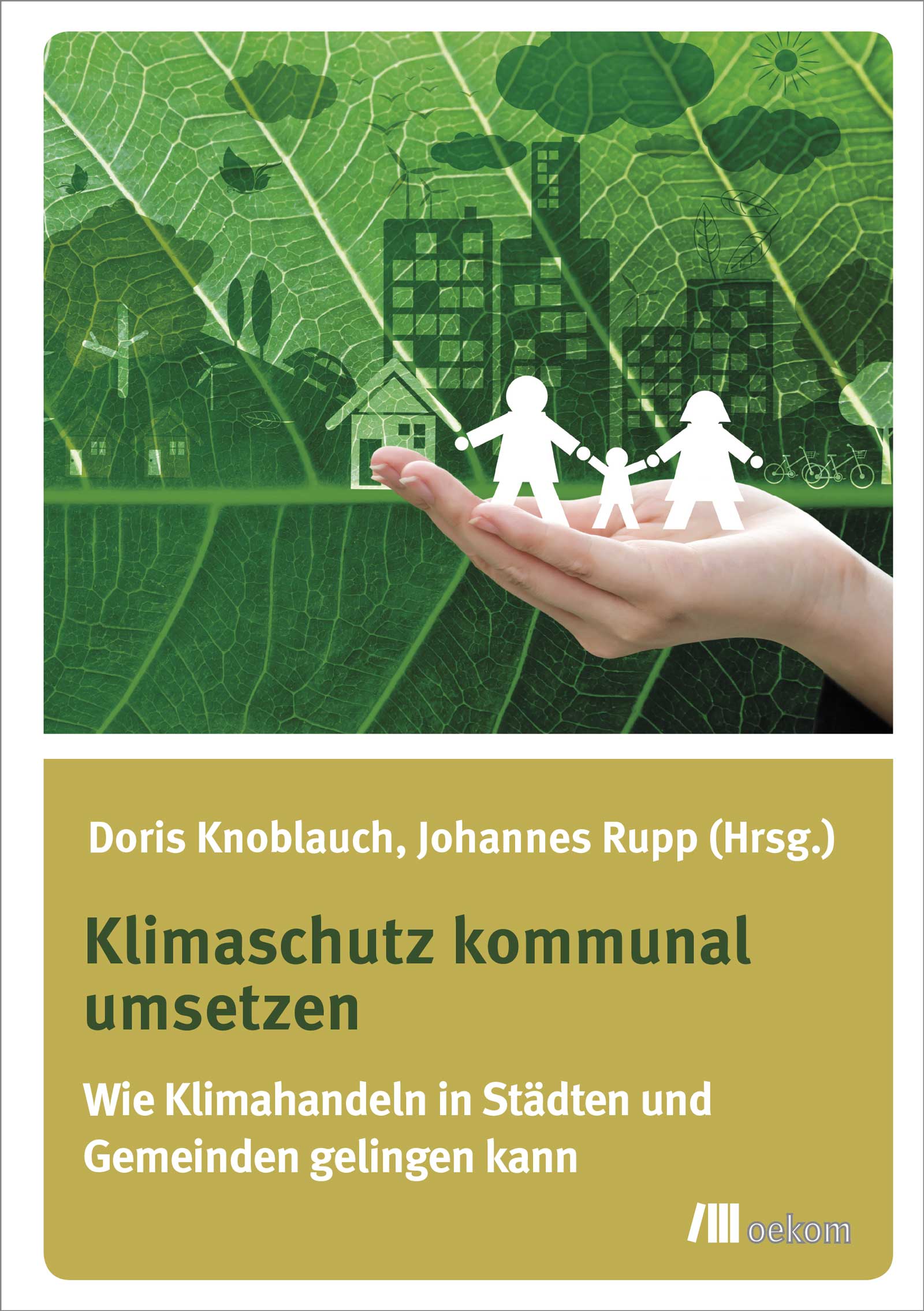Klimaschutz kommunal umsetzen – Implementing climate policies at the local level
How climate action can succeed in cities and municipalities
- Publication
- Citation
Knoblauch, Doris and Johannes Rupp (Eds.) 2018: Klimaschutz kommunal umsetzen. Wie Klimahandeln in Städten und Gemeinden gelingen kann. Munich: oekom Verlag.
How can cities and municipalities contribute to climate mitigation? What are the municipal institutions, actors and processes that matter? Which areas of activity and which approaches show promising results? These are the questions addressed in this anthology of Ecornet. In the book, researchers describe and analyse in 14 articles how the implementation of the Paris Agreement can be advanced by activities at the local level.
The anthology provides an overview of challenges and opportunities for local climate policies with regard to different types of institutions, processes, actors and areas of activity. It provides insights into the following approaches and issue areas:
- Urban energy transition,
- Citizen competitions for climate mitigation,
- Services for energy efficiency,
- Transition management,
- Sufficiency in municipal climate policies,
- Climate-friendly behavior in everyday life.
Examples of good practice by local authorities
All of the book’s authors are working at one of the German Ecornet institutes. Ecornet (Ecological Research Network) is a network of eight independent non-profit institutes for environmental and sustainability research in Germany. The Ecornet institutes systematically include non-scientific project partners (such as municipalities, civil society organisations, etc.) in their research projects. Thus, the authors draw on a large number of examples from their own experience in their various contributions to the anthology.
Municipalities take a pioneering role in climate mitigation
In 2015, commentators called the climate conference in Paris a "historic breakthrough", and to the surprise of many, the Paris Agreement entered into force already in November 2016. Now, the Paris goals must serve as a stimulus and a source of motivation to ensure that all relevant actors continue with their commitment to increasing and promoting climate mitigation and adaptation measures. Here, activities of pioneers and leaders at the local and regional levels can provide guidance for others, as the variety of good practice examples in the anthology demonstrates.
Download reading samples
The introduction is available for free download:
- Introduction [German]
Order publication
The book can be purchased via the publisher oekom Verlag: Order "Klimaschutz kommunal umsetzen" [German]




